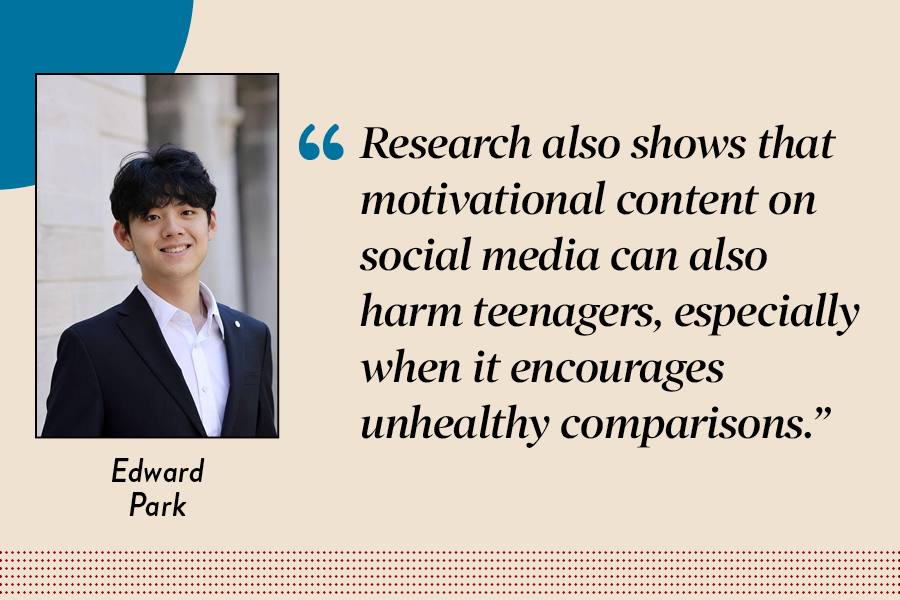It’s late. Phone in hand, as always, I aimlessly scroll through Instagram.
“I need to finish that essay, “ I think.
Then suddenly a familiar video pops up. With an intense, almost accusatory tone, a shirtless man with a muscular physique yells, “Stop being lazy, get out of bed and hit the gym.”
I pause for a moment, a sudden pool of guilt washes over me.
“Where am I in life?” I question myself.
But I scroll past it, still not doing anything like every time before.
These motivational videos, often accessible on social media platforms, offer a temporary boost of inspiration and drive, but they also pose a serious risk by promoting self-destructive thoughts and toxic ideologies to teenagers.
According to TeensHealth by Nemours, motivational content can help teens establish and stick to specific, realistic goals. The process of visualizing success, breaking goals down into manageable steps, and tracking progress can make ambitions more achievable and rewarding.
However, research also shows that motivational content on social media can also harm teenagers, especially when it encourages unhealthy comparisons or unrealistic self-expectations. According to the Harvard T.H. Chan School of Public Health, social media platforms like Instagram and TikTok expose teens to idealized body images and success-driven messages, leading to increased anxiety, body dissatisfaction and even eating disorders in extreme cases. Algorithms amplify this effect by pushing similar content to users, trapping them in cycles of negative comparison as they try to meet these unrealistic standards.
Yale Medicine further explains that the design of social media algorithms can lead teenagers into echo chambers filled with similar content, which may increase anxiety and encourage teens to measure their self-worth against impossible ideals. This exposure can sometimes result in a damaging need for validation, as teens become dependent on external content to feel motivated, ultimately risking self-doubt and reduced self-esteem.
As I scroll past yet another motivational video, it hits me once again: These clips, while designed to inspire us, are a double-edged sword. They might offer quick encouragement, but they also create a world of impossible ideals and constant comparisons. Instead of letting these videos define us, let’s take control by setting goals that matter to us, grounded in reality, and supported by genuine connections offline and in school.





















































